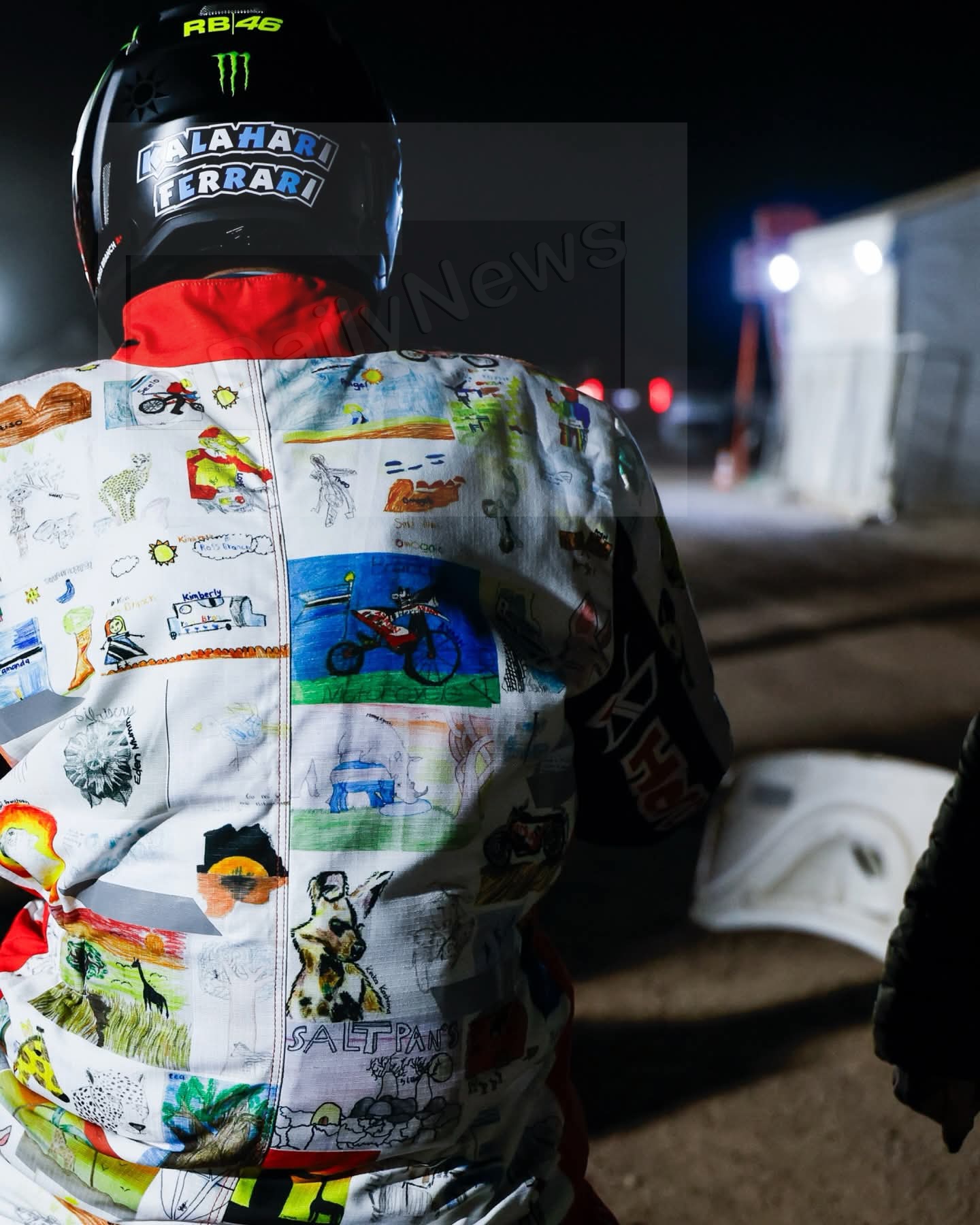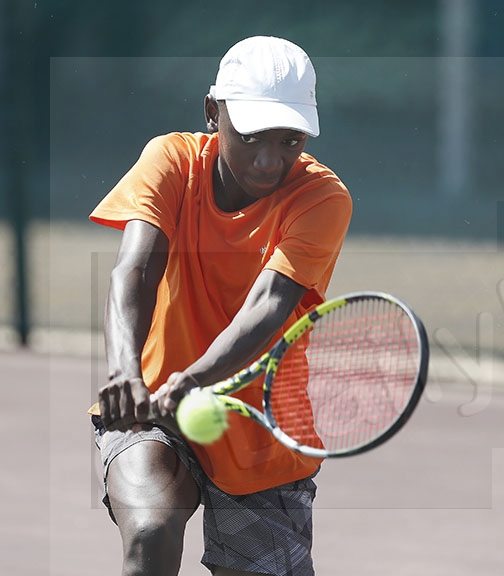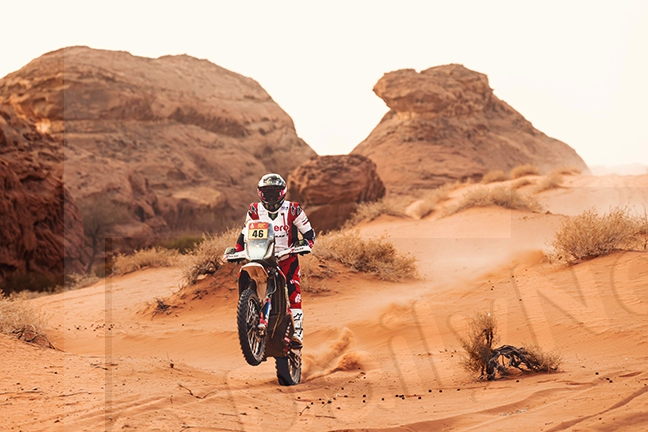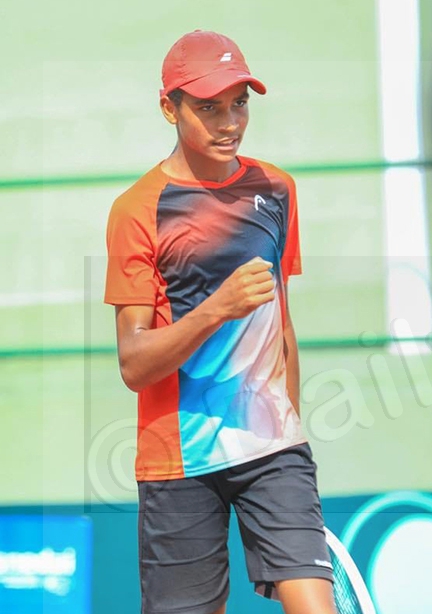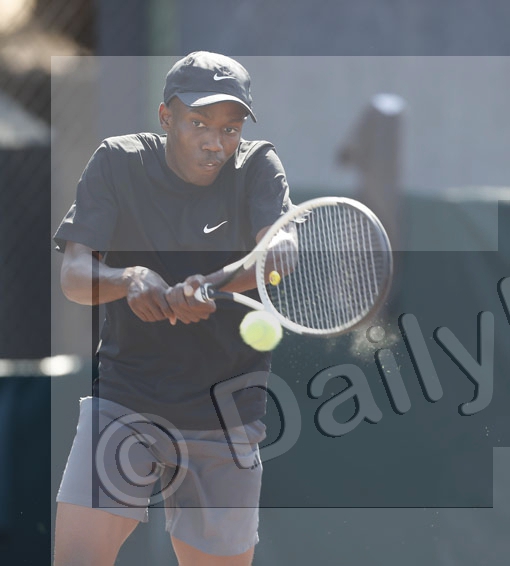'Athletics changed my life
02 Sep 2024
A track and field athlete, cum long jumper, had gone through the ups and downs of the profession, allowing him to gain prodigious experience for him to transcend boundaries in sport.
This is none other than Gable Garenamotse, a long jumper who hails from Gumare in the North West and represented Botswana in prestigious world spectacle to hoist the country’s flag high, gaining status of an international icon on the field track alike.
In an interview, Garenamotse shares his experiences like..., “with a grand sense of national pride and deep respect for our nation’s image, hoisting our glorious flag remained my priority.”
He is of the view that unwavering spirit and relentless pursuit of excellence in sport would catapult the country to greater heights.
“As we traverse through sport, hoisting the country’s flag and immersing ourselves in the spirit of unity, acknowledging the values that bind us together as a nation should be our guiding principle to achieve greatness in sport,” he said.
Garenamotse said sport has played an important role in his life from a tender age, thus using sport as a launch pad for the world to taste his greatness.
Born in 1977, Garenamotse remains Botswana’s long jumper of note who has won two silver medals at the Commonwealth Games.
At the 2002 Commonwealth games in Manchester, he won Botswana’s first ever silver medal and repeated the second place four years later at the 2006 Commonwealth Games in Melbourne, Australia, setting a national record of 8.17 metres.
In August the same year, he improved to 8.27 metres and won a gold medal at the 2007 All-Africa Games.
In 1999, Garenamotse won the triple jump at the African Southern Region Championships and participated in both long jump and triple jump at the World Championships.
Having peaked at a 16.66 metres jump that year, a national record, he decided to concentrate on long jump from thereon.
His first international medal was a bronze at the 21st Universiade (World Universities Games) in 2001 in Beijing, China.
He also won a gold medal the same year at the All Africa Games held in Morocco.
In 2004, he qualified for Athens Olympics in Greece, but was injured at a training session a day before the spectacle, thus taking him out of the competition.
Garenamotse went for Beijing Olympics in China in 2008, where he reached the finals, but missed a podium finish.
2009 was his final year of international competitions, where he qualified for world championships in Berlin, Germany where he also missed a podium finish at the spectacle.
In recognition of his outstanding performance in sport, government, through Botswana National Sport Commission (BNSC) sponsored him to pursue a degree in sport at the then University of Wales Institute Cardiff, now Cardiff Metropolitan University in Wales, United Kingdom from 2003 to 2005.
Appreciating the noble gesture by the government, he said it was a fully-funded scholarship that covered an air ticket, tuition fees, living expenses and associated expenses.
Garenamotse, who was a national champion in both long and triple jump from 1995 until his retirement in 2009, said he enrolled at the institute for Bachelor of Science in Sport Coaching and Development and then proceeded to study Master of Arts in Sport Development still under government scholarship.
Upon his graduation in 2005, being touched by the noble gesture of government, he decided to return home and lend a helping hand in sport development. He said according to his scholarship contract he had no obligation binding him to return home to work for the government, but it was out of his good will.
He said it has always been his ambition to develop sport in Botswana, therefore the scholarship endowment was a springboard towards achieving his goals because he was equipped with the right acumen.
In 2006, he was employed by Botswana National Sports Commission (BNSC) as a sport development officer and was tasked with establishing centres of excellence in several areas in the country as they were identified as one of the vehicles that would enhance sports performance.
Garenamotse said he implemented centres of excellence projects that saw sport moving to another level, citing that the cohort of Baboloki Thebe, Galefele Moroko and Karabo Sibanda, among others were the group he put together that bore testimony that centres of excellence could yield good results.
Commending government for playing a pivotal role in talent identification and development.
Moreover, he said, the government sponsored talent identification and development programmes such as Re Ba Bona Ha, which is BNSC’s grassroots sports development project targeting children of five to 15 years in different sporting disciplines.
The phrase Re Ba Bona Ha literally translated means ‘we see them here’, meaning this is where we identify future stars.
The goal of the programme, he said, was to identify talent and develop it, while exposing children to sport at a tender age and developing their athletic abilities.
He said Centres of Sport Excellence, which are special schools meant for the development of sport from grassroots level in a structured manner within the education system, were also sponsored by the government.
In addition, he said, Centres of Sport Excellence would enable learners to focus solely on sport for their future livelihood.
He spoke of Constituency Sport Tournaments, pointing out that they were a mass participation sport leisure programme introduced to curb social ills among the unemployed out of school youth and promote social engagement, fitness and their wellbeing.
Furthermore, he said, the tournaments also create opportunities for talent identification and development in different sporting codes, citing football, netball, volleyball and athletics.
Out of School Training Camps, he said, provided talented youth with the opportunity to hone their skills and consequently be assimilated into the national team.
Last, but not least, was Matlhagolatsela, which is an effort to develop grassroots sports, which the Ministry of Youth, Gender, Sports and Culture (MYSC) engaged in the process of reintroducing sports in schools.
Under the programme, he said, sports experts would volunteer their expertise to schools around the country at a minimal fee of P500 per month for a year.
Garenamotse, who is based in Serowe BNSC offices, hails government programmes for being able to reach far-flung places, citing Dimajwe and Malatswae for talent identification and development purposes, pointing that such a move would go a long way in promoting inclusiveness in sport.
He said the government’s talent identification and sport development programmes were working wonders, citing recent appearance in international domain in which Botswana’s sprint sensation, Letsile Tebogo won the country’s first ever gold medal at the Paris Olympics 2024 and the just-ended Lausanne Diamond League.
He said the government had created a conducive environment for athletes to thrive, adding that the performance of 4x400 national relay team and the fact that more athletes were now able to reach finals at international meets bore testimony that government programmes were sound enough to produce athletes that were competent enough to compete with the best in the world.
Garenamotse said Botswana track record in terms of sporting achievements had reversed the notion that athletes had to go outside the country for international meet qualifications. He said as such Botswana sport leadership needed to appreciate that the country was capable of organising and hosting competitions where other countries would be keen to come and compete, thus promoting sport tourism. Ends
Source : BOPA
Author : Keith Keti
Location : SEROWE
Event : Sport Thematic Pullout
Date : 02 Sep 2024





